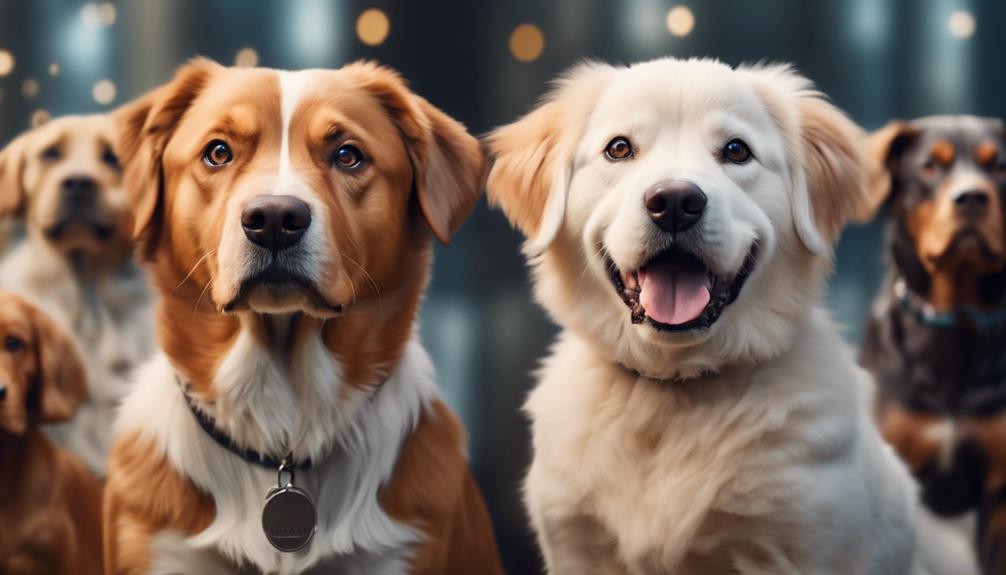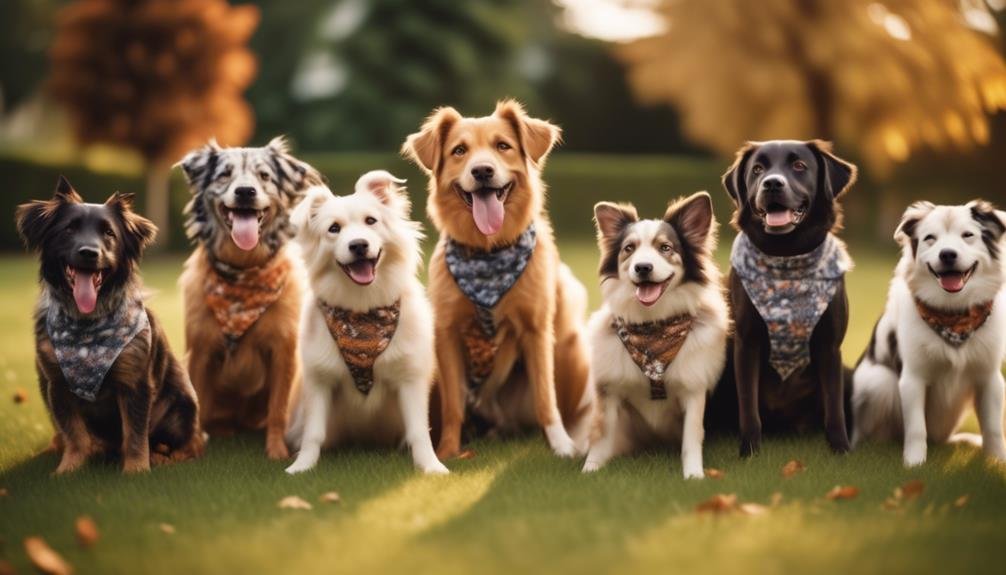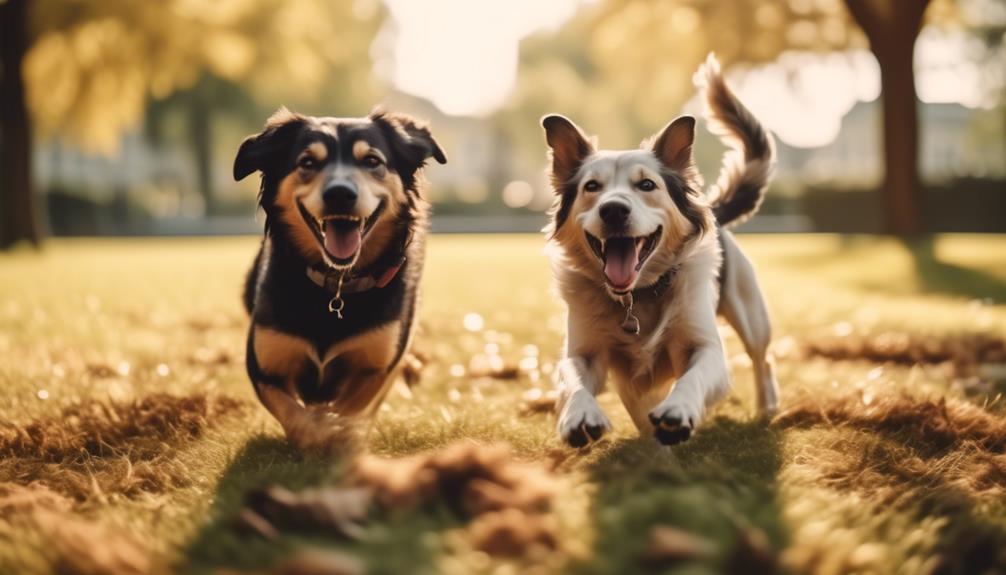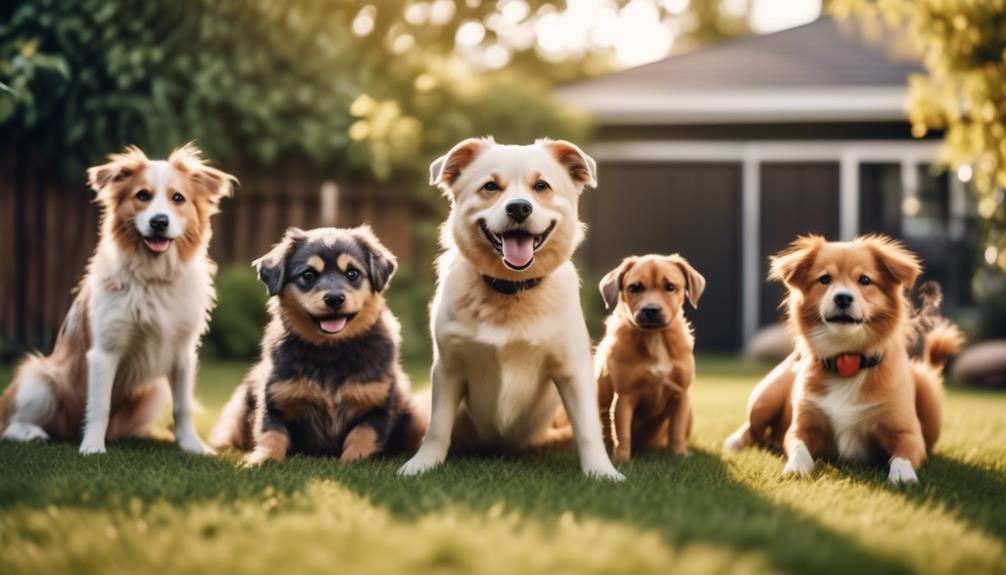Are you curious about the fascinating world of mutt (mixed) dog breeds? These unique and diverse dogs come in all shapes, sizes, and colors, making them a truly captivating group. From their intriguing characteristics to their remarkable adaptability, there is so much to explore.
But what makes these mixed breeds particularly adaptable? How do they fare in different living environments? And what qualities should you consider when choosing a mutt dog?
In this discussion, we will uncover the answers to these questions and more, as we embark on a journey to discover the incredible world of mutt dogs.
Key Takeaways
- Mutt dogs come in all shapes, sizes, and colors, with endless combinations of parent breeds.
- Mutt dogs can adapt well to apartment living, regardless of their size.
- When choosing a dog for an apartment, prioritize qualities such as being quiet, low-energy, and displaying polite behavior towards neighbors.
- Consider the dog's compatibility with your lifestyle, including their training needs, sensitivity levels, and exercise requirements.
Mutt Dog Breed Information
If you're considering adopting a mutt, you'll be delighted to know that these mixed breed dogs come in all sizes, shapes, colors, and patterns. Whether you're looking for a small dog that fits in your lap or a larger companion for outdoor adventures, there's a mutt out there for you.
From curly-haired mutts to ones with sleek and shiny coats, the variety is endless. You might find a mutt with a long snout or one with a short nose. Some mutts have pointed ears, while others have floppy ones. And when it comes to tails, you'll see everything from stubby to long and wagging.
The combinations are truly unique, making mutts a special choice for those seeking a one-of-a-kind canine companion.
Characteristics of Mixed Dogs

Now let's explore the unique characteristics that mixed dogs possess.
Mixed dogs, also known as mutts, come in all sizes, shapes, colors, and patterns. Their physical features can vary greatly, with some having long snouts while others have short noses. They may also display pointed ears or floppy ones, and their tails can range from stubby to long and flowing. With endless combinations of parent breeds, mixed dogs truly have a one-of-a-kind appearance.
In addition to their diverse looks, mixed dogs are known for their adaptability. They can thrive in apartment living, regardless of their size. It's important to prioritize qualities such as being quiet, low-energy, and displaying polite behavior towards neighbors when choosing a mixed dog for apartment living.
Adaptability of Mutt Breeds

Mutt breeds are highly adaptable and can easily adjust to various living environments. They possess a versatility that allows them to thrive in different situations. Here are some reasons why mutt breeds excel in adaptability:
- Mutt breeds come in all shapes, sizes, colors, and patterns, making them suitable for any home.
- Whether they've a long snout or a short nose, pointed ears or floppy ones, mutt breeds can adapt to their physical characteristics.
- Mutt breeds may have a stubby tail, spindly legs, or even a giant spot over their left eye, but these unique traits don't hinder their adaptability.
- With endless combinations of parent breeds, mutt breeds have the genetic diversity to adjust to different living environments.
No matter where you live or what your lifestyle may be, mutt breeds have the ability to adapt and become a cherished member of your family.
Considerations for Choosing a Mutt Dog

When choosing a mutt dog, there are several important considerations to keep in mind.
First, think about your living situation. Consider the size of your living space, but remember that size alone shouldn't be the sole determinant for apartment suitability. Some large breeds can adapt well to apartment living with lower activity levels, while certain small breeds with higher energy levels can still find contentment in apartments. Prioritize qualities such as being quiet, low-energy, and displaying polite behavior towards neighbors.
Additionally, think about your experience as a dog owner. Some dogs are easier than others and take to training better. Highly sensitive, independent thinking, or assertive dogs may be harder for first-time owners. Consider your dog-owning experience as you choose your new pooch.
Dog Friendliness and Compatibility

Consider the temperament and compatibility of different dog breeds when looking for a new furry companion. It's important to find a dog that will fit well with your family and lifestyle. Here are some factors to consider:
- Look for breeds known for their good temperament and compatibility with children.
- Consider the breed's history and purpose in relation to family life.
- Research and ask breeders or shelters about the dog's behavior with families.
- Spend time with the dog to assess their interaction with family members.
Care and Adoption of Mixed Breeds

To properly care for and adopt a mixed breed dog, it is important to understand their specific needs and provide them with the necessary care and attention. Mixed breeds come in various coat colors and grooming needs depend on the type of coat. Feeding your mixed breed dog the appropriate amount of food is crucial for their health and well-being. Consult with a vet to determine the right amount based on their size, age, build, metabolism, and activity level. It is also essential to provide daily exercise and mental stimulation to keep them physically and mentally fit. Regular vet check-ups, vaccinations, and preventive care are necessary to ensure their overall health. Additionally, mixed breed dogs require proper training to have good manners and behavior. By understanding their unique needs and providing the necessary care, you can give a mixed breed dog a loving and fulfilling life.
| Care and Adoption of Mixed Breeds |
|---|
| Understanding specific needs |
| Providing necessary care and attention |
| Feeding appropriate amount of food |
| Regular exercise and mental stimulation |
| Regular vet check-ups and preventive care |
| Proper training for good behavior |
Frequently Asked Questions
How Can I Determine the Breed Composition of My Mixed Breed Dog?
To determine the breed composition of your mixed breed dog, you can consider DNA testing. It's a reliable way to uncover the different breeds that make up your furry friend.
Are There Any Health Issues That Are Common in Mixed Breed Dogs?
Yes, there are health issues that can be common in mixed breed dogs. It's important to be aware of potential conditions and to provide regular veterinary care to ensure the health and well-being of your dog.
What Are Some Common Behavioral Traits Found in Mixed Breed Dogs?
Common behavioral traits found in mixed breed dogs include a wide range of personalities, temperaments, and energy levels. They can be affectionate, playful, loyal, and adaptable. It's important to spend time with the dog to assess their individual behavior and compatibility with your family.
Are Mixed Breed Dogs Generally Easier or Harder to Train Compared to Purebred Dogs?
Mixed breed dogs can vary in trainability, just like purebred dogs. Some may be easier to train, while others may be more challenging. It ultimately depends on the individual dog's personality, intelligence, and willingness to learn.
Can Mixed Breed Dogs Participate in Dog Shows or Competitions?
Yes, mixed breed dogs can participate in dog shows or competitions. They are eligible for certain events like agility or obedience trials. However, they may not be able to compete in breed-specific conformation shows.
What Are the Characteristics and Facts of Morkie Mixed Breed Dogs Compared to Mutt Mixed Breed Dogs?
Morkie mixed dog characteristics include a friendly and playful nature, with a small size and low shedding coat. Morkies are usually a mix of Maltese and Yorkshire Terrier, while mutt mixed breed dogs have a more varied ancestry. Both types make loving and loyal pets, but Morkies may be easier to predict in terms of size and temperament.
Conclusion
So, if you're considering getting a mutt dog as your new furry companion, you're in for a treat! Mutt dogs are unique and diverse, with endless combinations of parent breeds.
They're adaptable to various living environments, including apartments, and their size alone shouldn't be the sole determinant for apartment suitability. Consider their trainability, sensitivity levels, need for companionship, and tolerance to different climates when choosing a mutt dog.
With proper care and adoption, mutt dogs can bring joy and happiness to your life.




